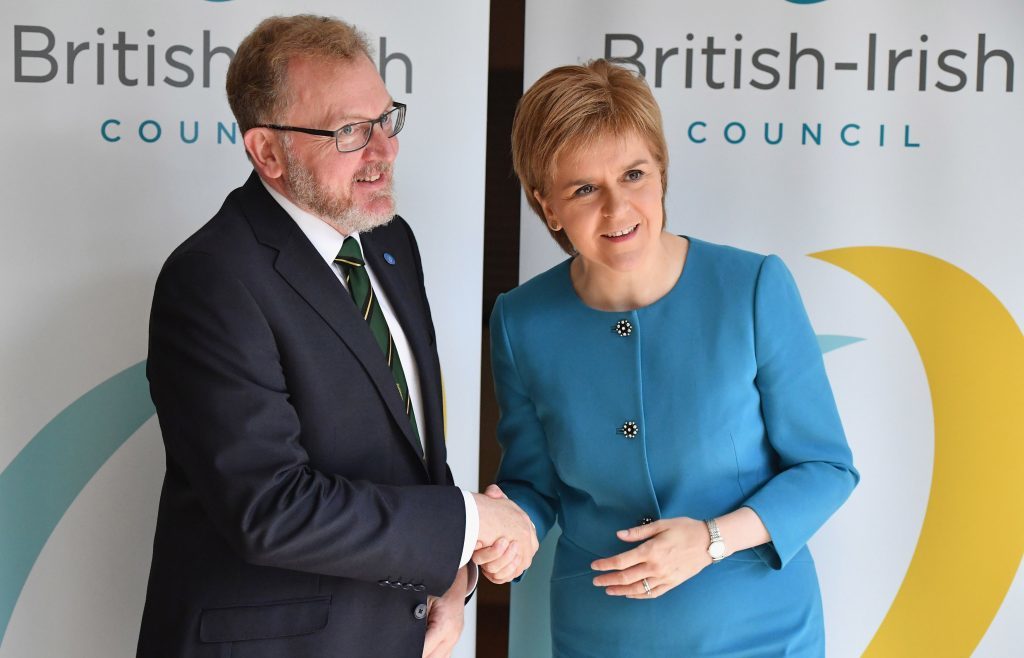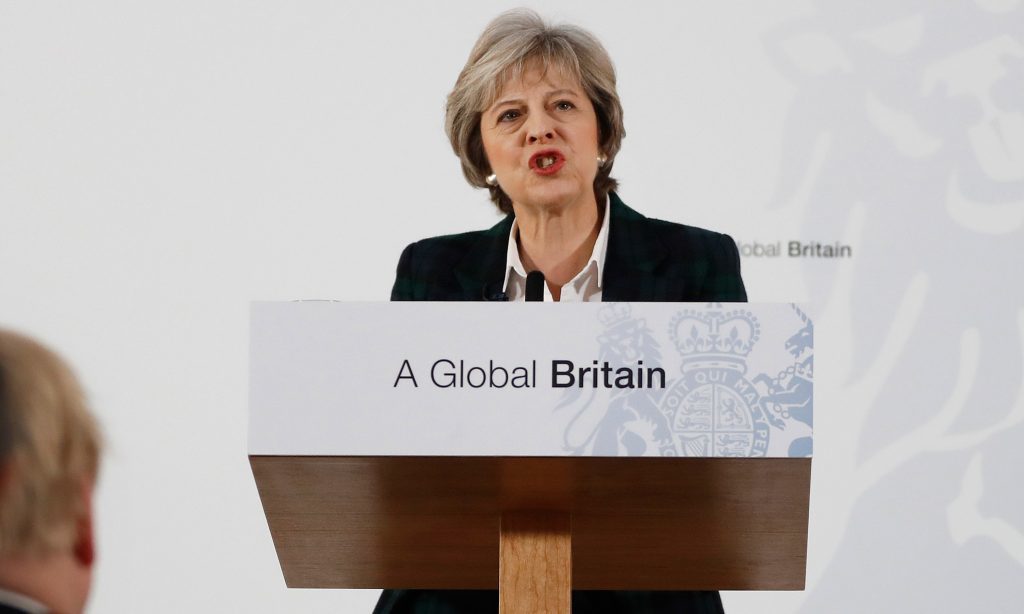There’s been talk about getting a sliding scale installed on the wall of the DC Thomson office at Holyrood.
Such an investment would surely pay off each and every day when our assembled journalists need to check how close Nicola Sturgeon is to calling a second independence referendum.
On June 24 it was “highly likely”. Things were quiet for a period until shortly after Theresa May’s hard Brexit speech on Tuesday, when we upgraded to “more likely”.
I use upgraded because I suspect this means we are more than highly likely, whatever that means.
There was movement further along our hypothetical scale just a few hours later, however.
In an interview with the BBC, the First Minister was asked if the Prime Minister’s move away from single market membership made a September 2014 rerun “all but inevitable”.
She answered: “I think that is very likely the case.”
Thankfully, “very likely inevitable” was simplified on Thursday during Holyrood’s Question Time.
Now another vote on whether Scotland should remain part of the UK is “looming”.
It feels like we are almost at the crucial point of declaration. So why hasn’t the SNP leader gone for it?
Before speculating, we need to play a quick game of compare and contrast, looking at what the Scottish Government wants from exiting the EU versus what the UK Government has put on the table.
Demand number one was for the whole UK to stay in the single market through the European Free Trade Association as part of some Norway-style deal.
May has made clear there’s as much chance of that happening as there is of one of David Cameron’s pigs flying.
Demand number two was much the same, except Scotland was able to seek Efta membership itself whilst remaining part of the UK.
As a result, many powers – including, crucially, over immigration – would be devolved to Holyrood.
This is not dead in the water, as confirmed by David Mundell. What the Scottish Secretary added, though, does not bode well for the SNP’s ask.
“We want to see the evidence as to why there should be a separate Scottish deal, economically not just ideologically, because the evidence I have is that a UK-wide deal which would give access to the single market without tariffs or barriers for the whole UK is in the best interests of Scotland.”
And the PM’s declaration that “no new barriers to living and doing business within our own Union are created” does not seem to augur well for Scotland being in the single market and the rest of Britain being outside it.
On devolution, there will be more powers but these are unlikely to be met warmly because, firstly, no amount of new powers is understandably ever enough for a party which wants independence and secondly, immigration will not be included.
Sturgeon appears to be in prime position to pull the trigger on a second independence referendum and force May and her ministers to either reject it or start negotiating the date.
Why won’t she?
Probably because Brexit has caught her on the back foot as well and she is smart enough to know it.
Remember, the SNP manifesto made it quite tricky for another plebiscite during this parliament. The FM and her inner circle did not want a leave vote last June.
It is common knowledge that Andrew Wilson, the lobbyist and former SNP MSP, is heading up a Growth Commission tasked with figuring out exactly how an independent Scotland’s economy would thrive.
I understand the Nationalists’ economy team at Westminster have also been tasked with coming up with a strategy for a separate Scotland.
Why would you choose to begin a campaign, which if lost would likely cost you your job and end the prospect of independence for decades at least, if you didn’t have answers to the questions that caught you out last time?
Why kick-off proceedings fumbling about over the currency, how to deal with falling oil revenues, how borders (hard, soft, or not there) would work with the rest of the UK?
Brexit wounds the economic case for independence but has not had the positive emotional impact Nationalists were banking on, if polls are to be believed.
That counts double given the fact a significant minority of SNP supporters voted to leave.
So if the sliding scale finally becomes of no use, if a second referendum moves from highly, very, exceedingly, or even preposterously likely to certain then there will already be the bones of a Yes campaign and it will have answers and a plan to minimise political risk.
If there aren’t similar back-room moves from within any Unionist party – most likely the Conservatives given the current state of Labour – whatever plays the part of Better Together next time round will be playing catch up from the off.












